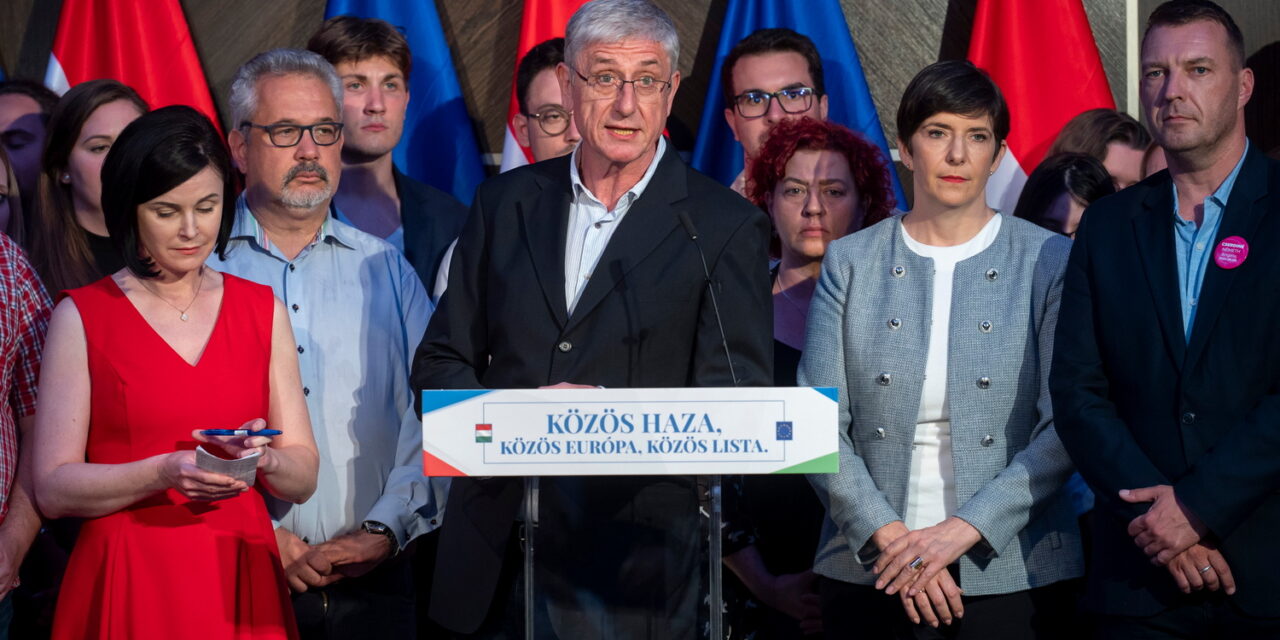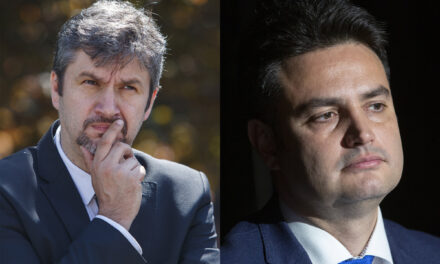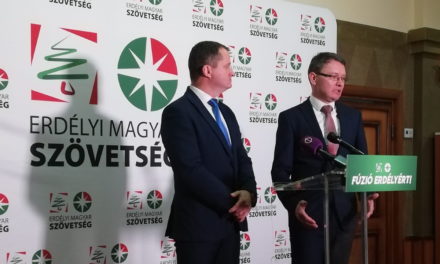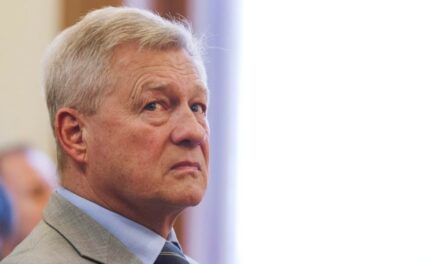– The European Parliament and municipal elections held on June 9 brought earth-shattering changes to the left. What do you think the voters said to the left?
- Knowing the results, it can be said that the old dollar left was downgraded by the people. The six parties that joined forces in 2022 performed poorly, and the voters punished these actors. Péter Magyar was able to ride the opposition-changing atmosphere, this can be seen from the fact that 3-4 percent of Tisza's voters came from Fidesz, the rest were all part of the opposition's voting base. At the beginning of the year - even before the appearance of Péter Magyar - Ferenc Gyurcsány hoped that the DK would retain its leading position and that all other small parties - including the MSZP - would drop out and not reach the 5 percent threshold. After the appearance of Péter Magyar, the president of the DK realized that this was also dangerous for him, so he made an alliance with the MSZP and Párbeszéd.
– In the case of the MSZP, the co-presidents resigned, and the alliance in which they started, the DK–MSZP–Párbeszéd association, seems to be cracking. Imre Komjáthi, the resigned co-chairman of the MSZP, also called it pointless. What do you think awaits the MSZP in the near and distant future?
– The situation of the MSZP and the Párbeszéd can typically be described by saying that a sparrow today is better than a hawk tomorrow: they preferred to play it safe and teamed up with the DK in order not to bleed out at the 5 percent threshold and thus keep themselves in a negotiating position in the 2026 for choice. By teaming up with DK, they avoided this slap in the face. At the same time, however, they are becoming increasingly weak, as several successful politicians have left the party even at the local government level. It can be said about the MSZP and all small parties in general that although they have their parliamentary faction and publicity, and they also receive state support, the latter only supports the party centers and the experts organized around them, and they have no strong people in the countryside.
- A special situation arose in Jobbik as well, since not only did it fall out of the EP, but its previous president, Márton Gyöngyösi, was also replaced. Could the fate of the MSZP also await Jobbik?
- Compared to the MSZP, Jobbik is in a better position in that they were still able to put up more county lists, so they are stronger in the countryside than the socialists. Of course, they also have problems, the former mayor of Eger, Ádám Mirkóczki, who was previously a key politician of the party, also left Jobbik. So the picture is the same as in the case of the MSZP, that their rural politicians are diminishing, although the extent is different. The role of Márton Gyöngyösi and Anna Donáth also exemplifies that it is not possible to build or manage a party from Brussels. Apart from DK, the 2022 six-party coalition will appear as a run-out model in 2026. If they can't make a deal again to have a faction, these parties really have no perspective, because they can't jump the 5 percent threshold, and it doesn't appear that the new leadership will bring a new program.
– Although it achieved considerable success in 2019, Momentum has now been dropped from the EP. During the presidency of Anna Donáth, it seemed that the party wanted to forget that it had teamed up with the Gyurcsánys in 2022, but in the light of the results, this strategy does not seem successful. What kind of Momentum can we expect under the leadership of Márton Tompos?
- Momentum is in the same situation as the other small parties. It does not appear that Márton Tompos could make significant changes. The iceberg melts under their feet, and then someone always has to be pushed into the water. At the same time, whoever is elected as party president now has a good chance of remaining until the next parliamentary elections, and thus it will be much easier personally for him to get a good place on the list and in the parliament if they get in. Márton Tompos is considered an active politician, and his big advantage over Anna Donáth is that he is at home and can build a party here, not from Brussels. However, no great renewal is expected in matters of content, of course the new president will probably appear more, but he will say the same things as before.
– And finally let DK come. Since June 9, Ferenc Gyurcsány, the president of the party, has been explaining at length on many platforms why he is not to blame for the series of defeats, and has pretty much gone after everyone until he admits his own responsibility. Did DK run into a dead end? What could be Gyurcsány's plan?
- Quoting András Schiffer, Ferenc Gyurcsány is now carrying out "base consolidation". At least 200,000 voters left DK compared to the previous EP election. They are roughly the radical opposition voters, the group that doesn't care who governs, but not Orbán. The situation in DK could be described in such a way that while Viktor Orbán was boxing in the blue corner, the Gyurcsány couple was in the red corner, for example, if Orbán was talking about the Europe of Nations, then the DK was talking about the United States of Europe. Péter Magyar pushed them out of this red corner, and that is why Gyurcsány needs to consolidate his voter base, so that at least his approximately 300,000 voters remain. It is no coincidence that Gábor Vona and András Schiffer are exemplified, since their party also collapsed with their departure. The goal of the DK president is to maintain his own position. From DK's point of view, the next two years can be described in the simplest way that Gyurcsány is playing for time. Obviously, he is the sharpest knife on the left, he is the one who can compete with Péter Magyar, and he will do so. The dissolution of the shadow government also shows that Gyurcsány will appear more. For the time being, he is consolidating his base, and then sometime in the autumn he will start the old record again, the unity mantra, and this could put Péter Magyar in a difficult situation.
Cover photo: Ferenc Gyurcsány, the president of the DK, gives a speech at the DK-MSZP-Párbeszéd party alliance's European Parliament and local government election results event at the Radisson Blu Béke Hotel in Budapest on June 10, 2024.
Next to him is Klára Dobrev, the EP list leader of the DK-MSZP-Párbeszéd (j2), Ágnes Kunhalmi, the co-president of the MSZP, and Balázs Barkóczi, the spokesperson of the DK (j). MTI/Zsolt Szigetváry













